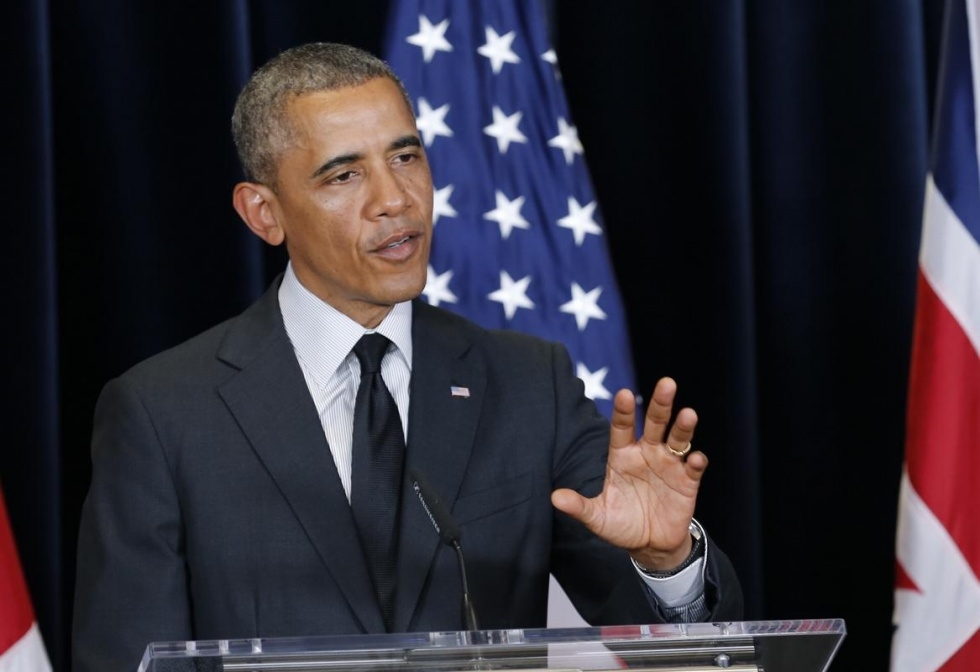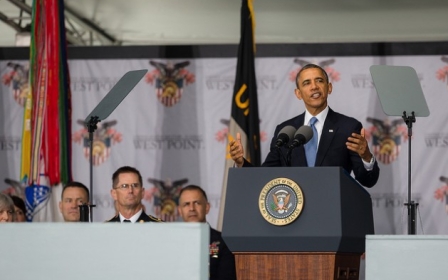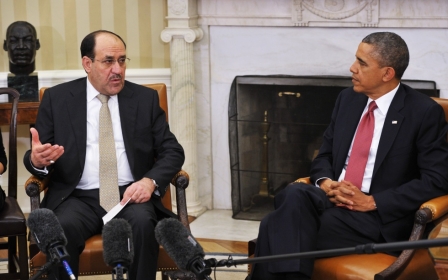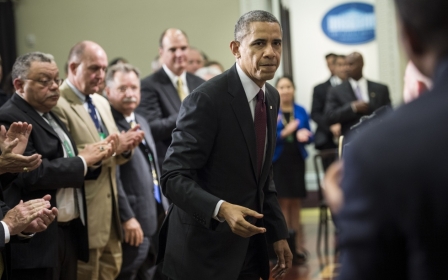Analysis: Iraq war politics come back to haunt US

By Stephen COLLINSON
WASHINGTON - The Iraq war, like a disease after a period of remission, has flared up again to besmirch American politics.
Days ago, US politicians were eyeing the first national election since 2000 in which Iraq would not be ammunition for the partisan crossfire.
But the land-grabbing march by Sunni fighters across Iraq - still mired in the war America unleashed in 2003 - ended that.
The conflict that US President Barack Obama once declared ended, is now in the mix for November's mid-term congressional elections, as Republicans charge he squandered the loss of 4,500 Americans in bringing US troops home too soon and opening a vacuum for extremism.
The war could haunt the 2016 White House race as well, with Obama's legacy on the ballot and his first secretary of state Hillary Clinton expected to run.
Obama "has left America weaker and will leave substantial problems to his successor," said Republican Senator Mitch McConnell, framing the charge for the next two election cycles.
Senator Marco Rubio, who has the 2016 Republican nomination in his sights, is using Iraq to make a wider case of White House failures.
It's "almost like we're overwhelmed by the number of crises and conflicts that are arising as a result of the incompetence and in some instances the design of the administration," Rubio told Fox News.
For Republican House Speaker John Boehner, it's simpler: "the wheels are coming off."
Hubris
Democrats, furious at the hauteur of Republicans who took America into the war in Iraq, have also mobilised - playing the hand dealt them by America's lingering antipathy to new foreign wars.
"Those who attack the president for bringing our troops home from Iraq are just flat wrong, and they are out of step with the American people," said Democratic Senate Majority Leader Harry Reid.
It's all a reminder that US wars overseas, which often cleave deep partisan divides, can infect Washington politics long after American guns fall silent.
"Big wars, and Iraq is one of them, have a way of sticking around for a long time," said Julian Zelizer, a professor of history at Princeton University.
"Vietnam lasted many presidencies and had many effects on different presidents - Iraq is the same."
For a generation of leaders, the lesson of Vietnam was be wary of overstretch overseas - until the September 11 attacks in 2001 tore up US foreign policy orthodoxy.
'Intense emotions'
Obama on Thursday tried to ensure the new outburst of angst over Iraq does not cloud the logic he offered Americans in 2008 and rode all the way to the White House.
"Iraq sparked vigorous debates and intense emotions in the past, and we've seen some of those debates resurface," he said, as he announced the dispatch of 300 advisors to help train Iraqi government forces but insisted he was not slipping back into the quagmire.
"What's clear from the last decade is the need for the United States to ask hard questions before we take action abroad, particularly military action," Obama added.
This partisan squabble over Iraq is not just a fight to win daily news cycles, but a tussle for how history will judge two presidencies.
Neoconservative and Republican ex-officials and experts, in purgatory after the disastrous post-war period in Iraq - have emerged to accuse Obama of losing a war they say Bush won - despite widespread perceptions that the 2003 invasion was an error.
"Too many times to count, Mr Obama has told us he is 'ending' the wars in Iraq and Afghanistan - as though wishing made it so," Vice President Dick Cheney wrote, homing in on the weakness of Obama's position in a Wall Street Journal article.
"His rhetoric has now come crashing into reality."
The irony was too much for Secretary of State John Kerry, who told NBC News: "This is the man who took us into Iraq saying this? Please."
Obama aides privately welcomed Cheney's intervention, reasoning voters could stand to be reminded of an unpopular voice of an administration that left office in disarray.
But Iraq's sudden crisis does mean trouble for Obama.
Only a few weeks after sketching a foreign policy doctrine premised on avoiding costly engagements overseas, he finds himself getting sucked back into the Middle East.
Michael Corleone's line from "Godfather Three" - "Just when I thought I was out... they pull me back in" - was heard in the parts of the White House this week.
But Iraq's return visit to American politics does expose the president to Republican claims that a string of foreign policy missteps, from Syria to Ukraine, are exerting their price with his foreign policy poll ratings tumbling.
It also adds to a growing impression he is struggling to impose himself on a turbulent world.
And ahead of elections in which his Democrats expect heavy congressional losses, Obama can ill afford a new crisis to dampen his personal prestige.
A new Wall Street Journal/NBC poll this week found the president's approval rating at 41 percent, and raised suggestions that Americans are beginning to tune him out.
New MEE newsletter: Jerusalem Dispatch
Sign up to get the latest insights and analysis on Israel-Palestine, alongside Turkey Unpacked and other MEE newsletters
Middle East Eye delivers independent and unrivalled coverage and analysis of the Middle East, North Africa and beyond. To learn more about republishing this content and the associated fees, please fill out this form. More about MEE can be found here.




